Farewell To Alms: How 200 beggars in Lucknow have become self reliant by setting up micro-businesses
According to the 2011 Census, Uttar Pradesh has 65,835 beggars and a large number of them live in its capital city Lucknow. Their numbers have risen since then, but one man’s initiative is trying to rehabilitate them and provide them with dignity and a livelihood.
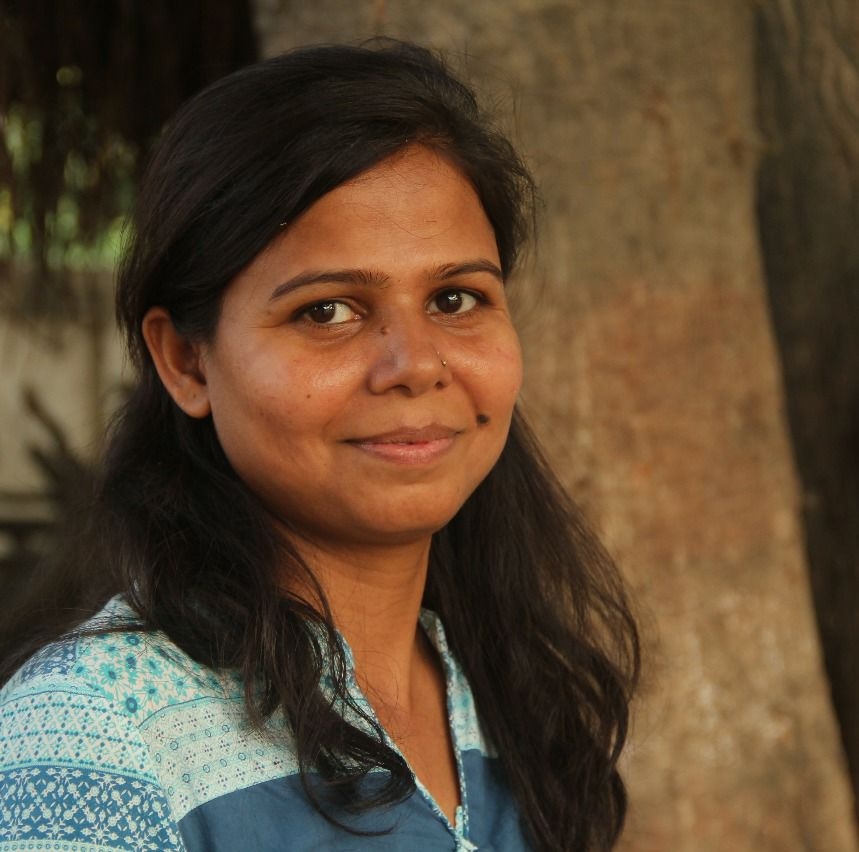
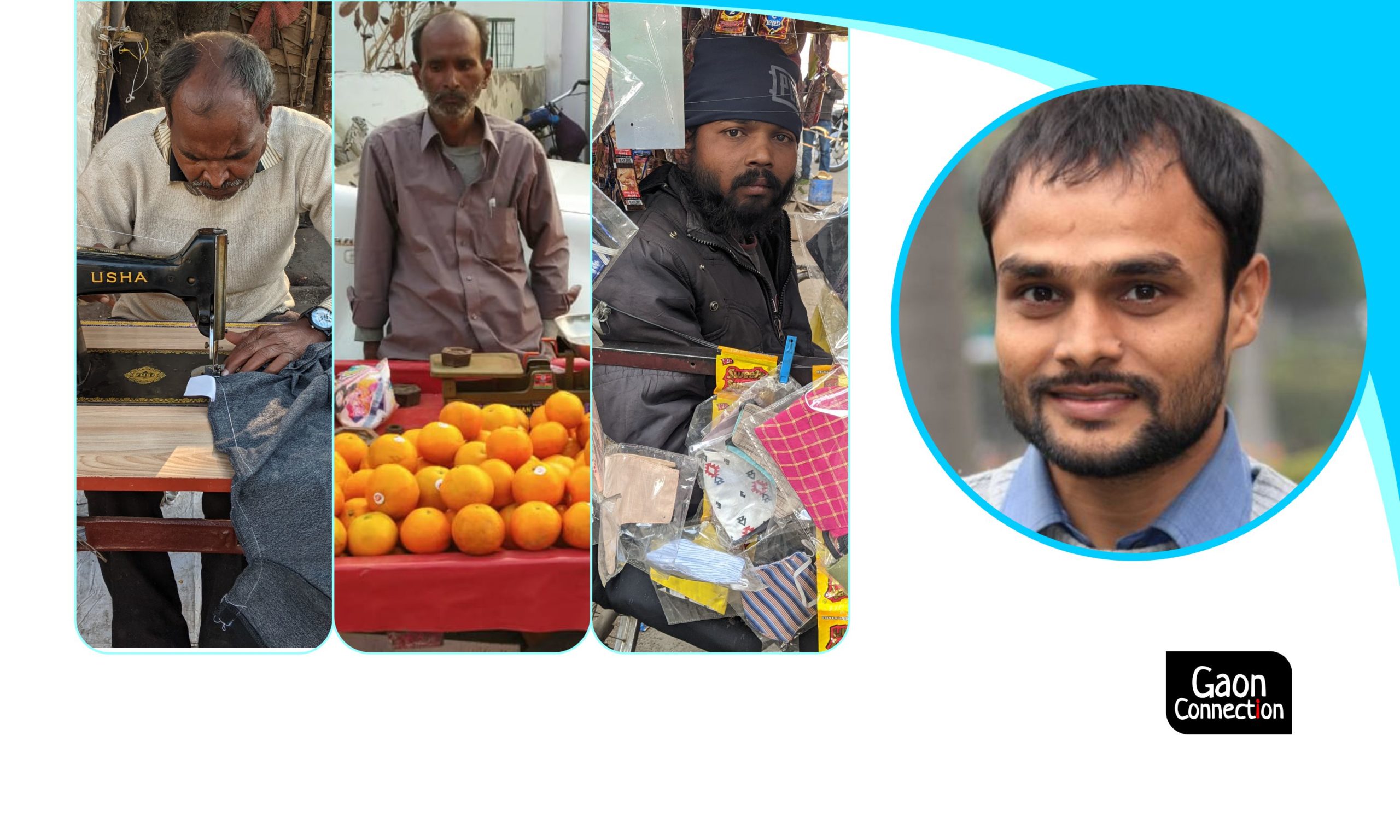
On a wintery afternoon, 29-year-old Sonu Jha narrated the hardships that he had to endure since he lost his job in the coronavirus pandemic.
“I had to beg and eat in front of a temple for three months,” Jha painfully recounted. “Initially, when the lockdown was announced, many people distributed food and help to the needy. But a month later, hunger became a challenge,” he recalled. Jha was just one of the countless others, who lost their jobs, went hungry and just struggled to live.
“I belong to a poor family and I lost my father at an early age,” said Jha. But, even then he had never ever had to beg for food, said Jha who is a migrant worker from Bihar’s Samastipur district. His family migrated to Lucknow in search of a job but his father passed away in 2001 following which the responsibility of looking after the family fell on Jha’s young shoulders. He was only 10 years old then.
But, things changed, when a saviour, in the guise of Sharad Patel, threw him a lifeline recently. “Two months ago, he gave me Rs 10,000 and helped me set up a cart to sell toys. The sale is not excellent but I manage to save Rs 200-300 a day, and sometimes a bit more than that,” Jha said.
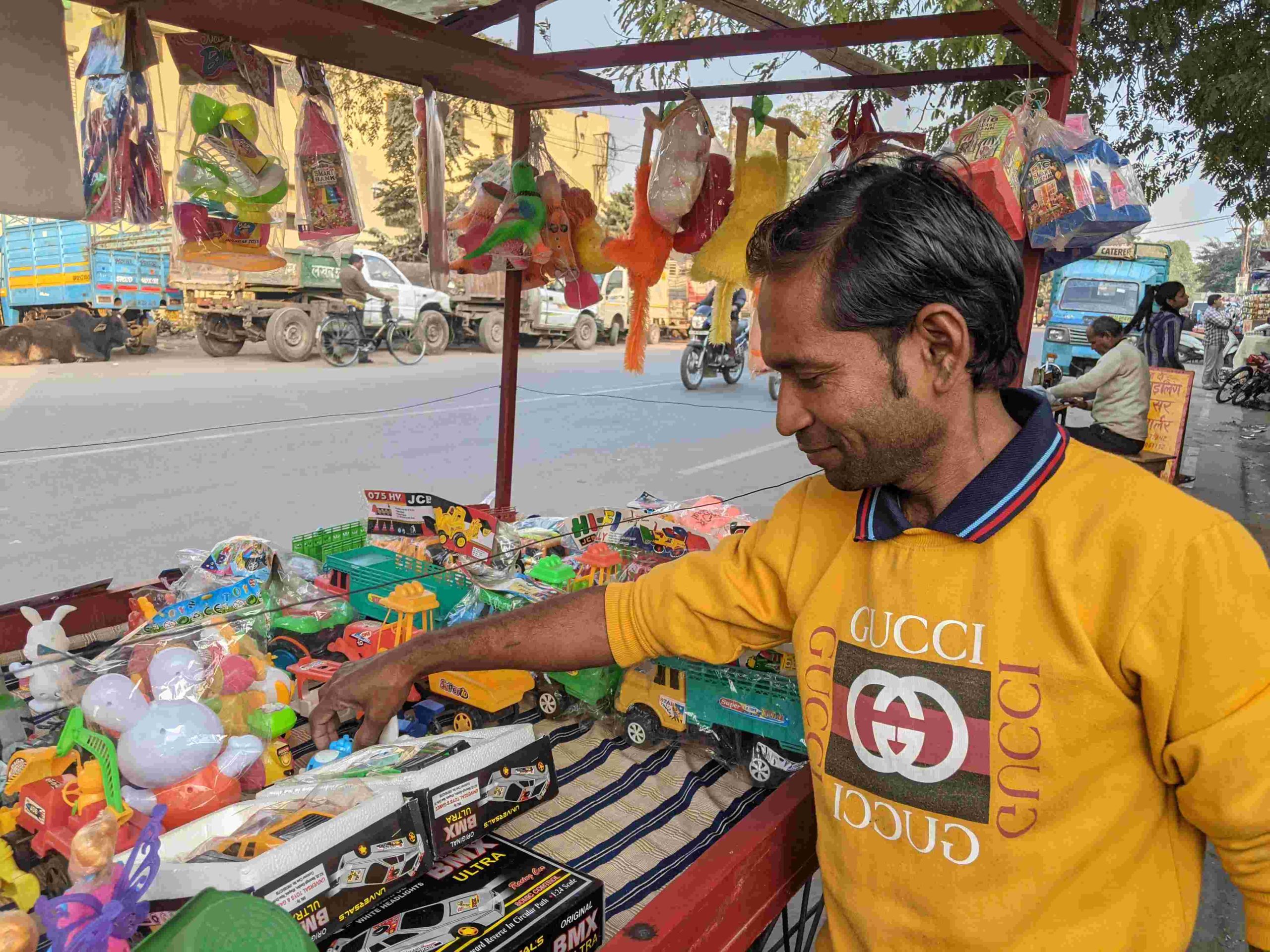
Thirty-year-old Patel who is from Hardoi district helms the Bhikshavritti Mukt Abhiyaan (Freedom-from-begging movement) which was launched in 2014. He also founded the Badlaav non-profit which rehabilitates beggars in Lucknow.
Patel has rehabilitated as many as 225 people who were forced to beg. They are now the owners of small businesses. Most of them, like Jha, had lost their means of livelihood in the pandemic, and there were quite a few others who were living with disabilities.
According to the 2011 census, Uttar Pradesh ranks second in the number of beggars in the state. West Bengal has the highest number.
Patel dislikes the word ‘beggars’ and refers to those he helps as ‘seekers’. “For the last seven years. I tried to persuade the government to do something about these people, in vain. I then coordinated with some social workers and organisations to enable the seekers to become self-reliant,” he explained.
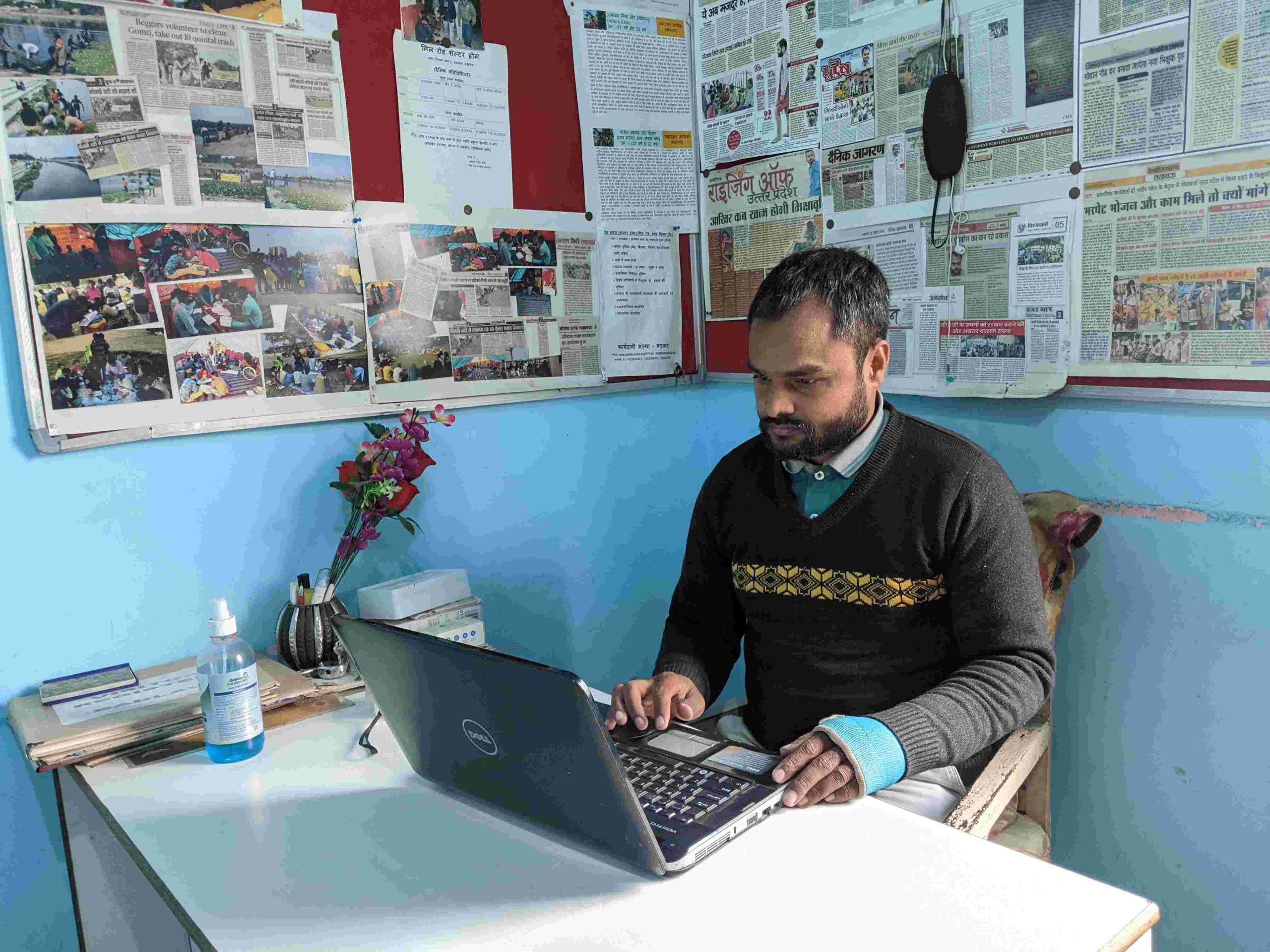
In the last three years, more than 200 ‘seekers’ have set up their own micro-businesses, 209 have been repatriated with their families and a free school has been opened for their children, Patel informed Gaon Connection. Patel’s initiative also helps the beggars with getting aadhar cards, ration cards, pensions etc., besides enabling them to be treated at government hospitals, and, if they died and there was no family to claim their bodies, their last rites were also taken care of.
According to Patel, he surveyed 3,000 beggars and found that 98 per cent of them said that if the government provided rehabilitation, they would quit begging. Also, 88 per cent of the beggars were originally from Uttar Pradesh while 11 per cent were from other states (data missing for 1 per cent). Of the total beggars, 31 per cent were begging for more than 15 years.
“It takes a lot of time to reform their behaviour because many of them are drug addicts. We try our best that at least one beggar finds occupation in a period of six months,” said Patel. He said the numbers of those on the streets begging had risen in the pandemic. “I managed to rehabilitate around 30 of them and they are now stitching, selling vegetables, toys, etc,” he said.
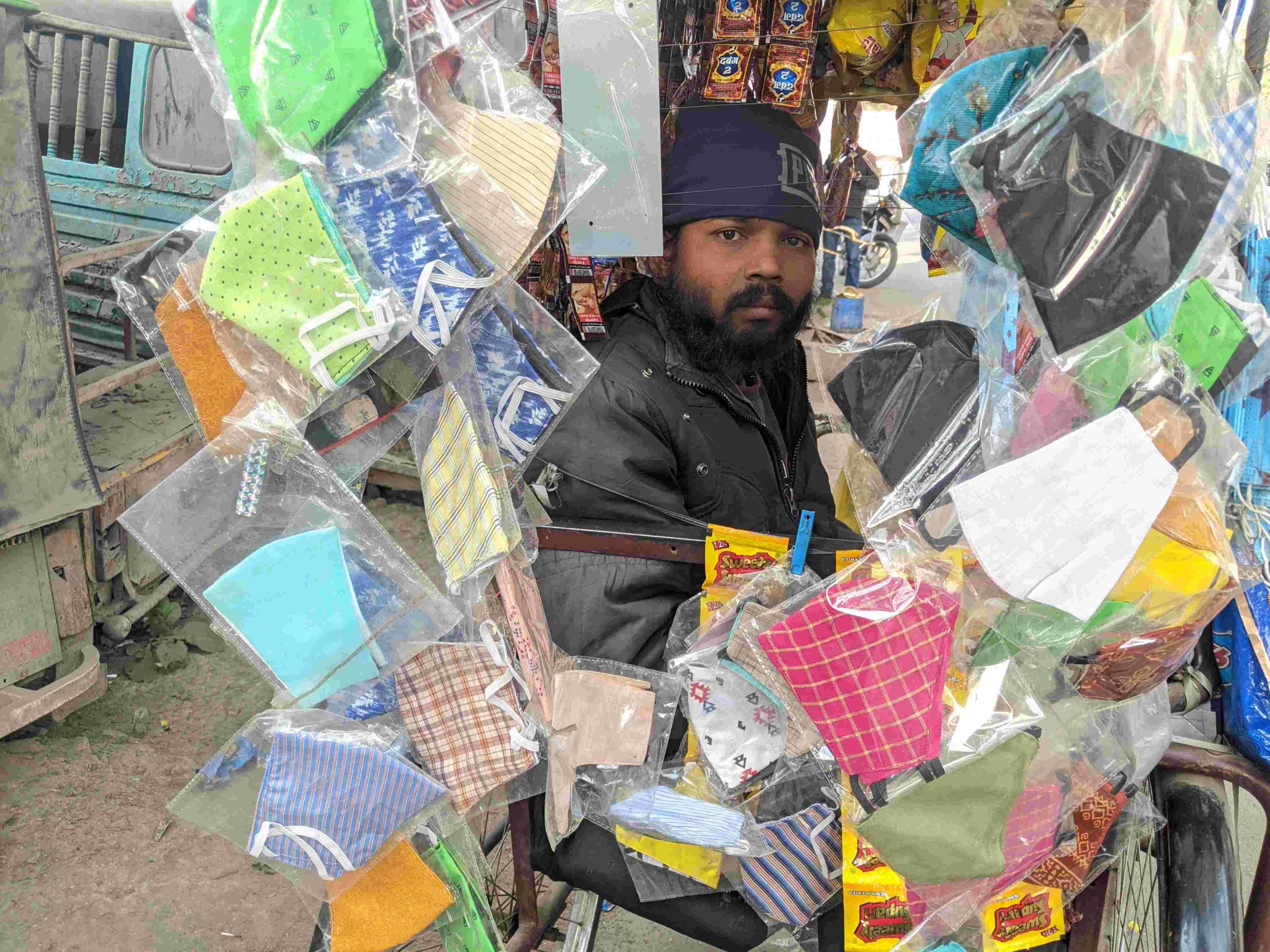
But it is an uphill task, admitted Patel. “It takes daily visits to the field to connect with them and establish a relationship. It is only after a great deal of counselling and trust-building that they agree to change,” he said. There is also the matter of money required to rehabilitate so many of them, but so far they have been managing with the largess of donors and social service organisations, Patel said.
Patel filed a Right to Information (RTI) to know what facilities were available under the Uttar Pradesh Prevention of Begging Act, 1972. He learnt that there were eight state-certified beggars’ shelter homes in seven districts of the state. The shelters accommodate beggars aged 18-60 who are provided with food, a roof over their heads and some health facilities. Employment-oriented training and education were also supposed to be provided so that the inmates could rejoin the mainstream. But according to Patel, not one beggar lived in these shelters.
In March, 2018, the ministry of social justice and empowerment informed the Lok Sabha that according to the 2011 census, India is home to 4,13,760 beggars in which 2,21,673 were males and 1,91,997 were females. West Bengal topped the list with 81,244, followed by Uttar Pradesh with 65,835 and Bihar with 29,723 in third place.
Not too far from where Jha sells his toys, 53-year-old Dhaniram Raidas, operates a sewing machine given to him by Patel a couple of months ago. “I used to make curtains at a big showroom. But an accident damaged my leg because of which I use a crutch. Nobody wanted to hire me and even my family cast me out,” Raidas said. He preferred to eat at the Hanuman Setu temple in Lucknow. He now tailors clothes and earns about Rs 50 to Rs 100 a day.
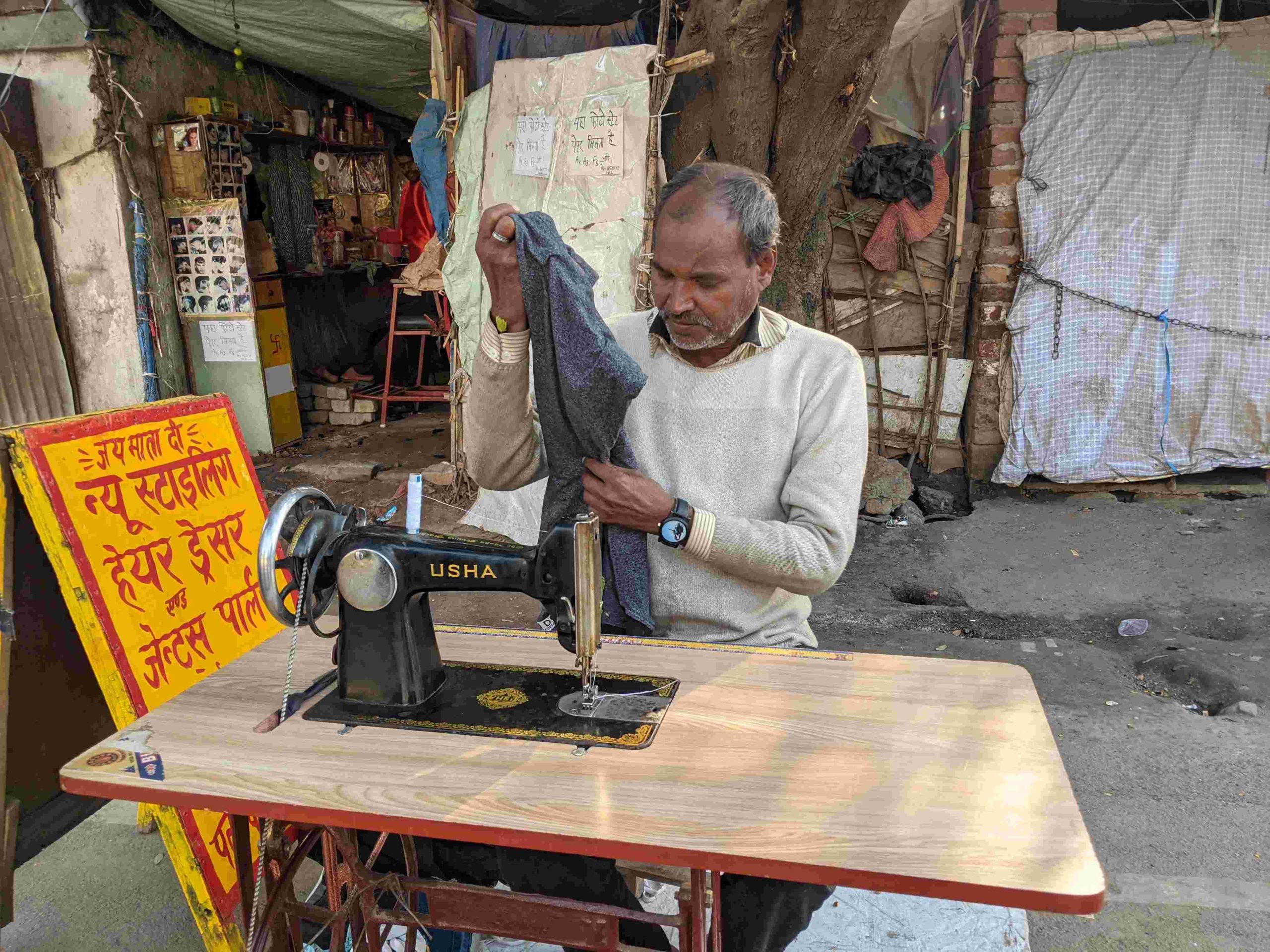
There are shelter homes run by the Nagar Nigam at the Aishbagh Mill Road that houses 22 people. There are 23 shelter such homes run by Nagar Nigam in Lucknow which are also aided and managed by non profits. The two shelter homes at Aishbagh are managed by the non-profit, Badlaav.

